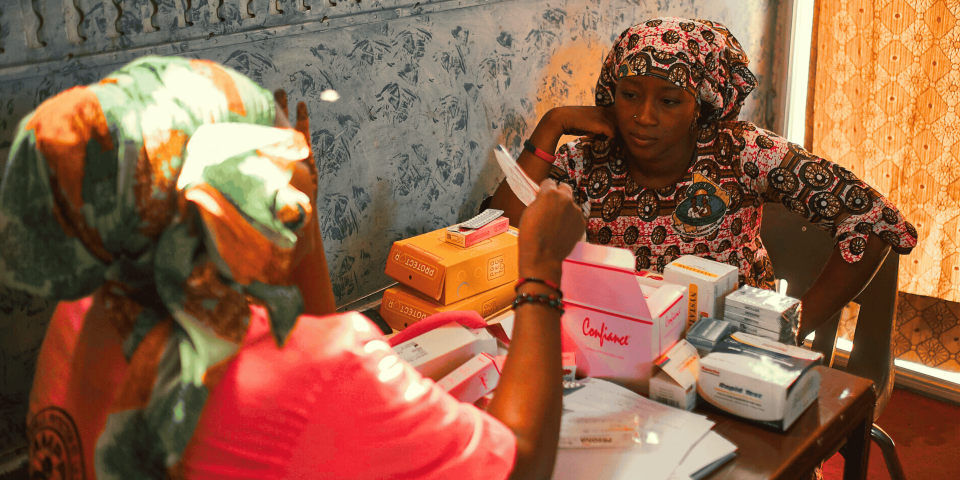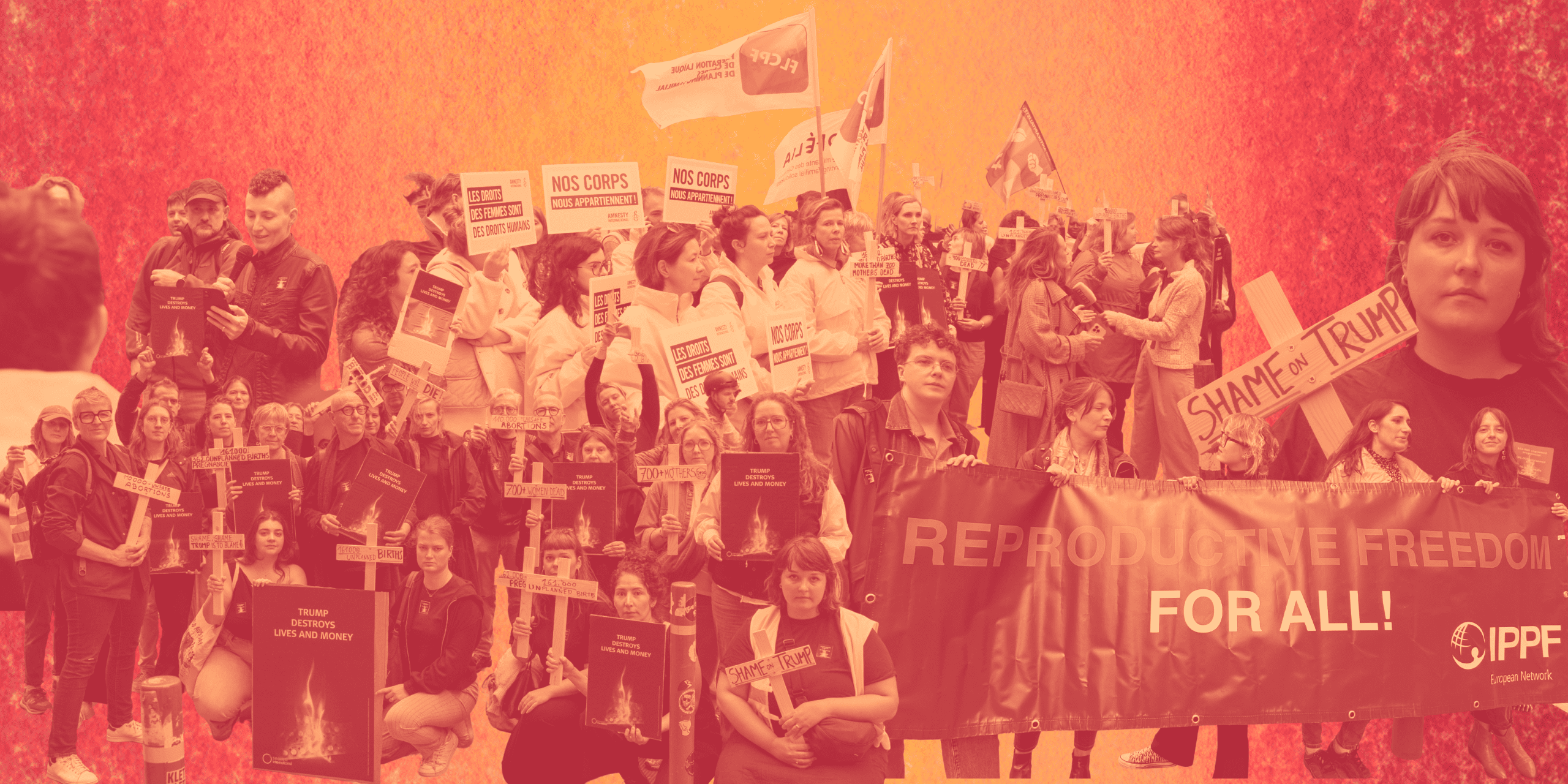The world is not experiencing a momentary pause in progress. It is undergoing a structural shift. Across traditional donor countries, the retreat from international cooperation is no longer subtle. It is deliberate, systemic, and widespread. At the sharp end of these shifts lies the global struggle for sexual and reproductive health and rights (SRHR), where funding cuts are not simply accounting decisions—they are acts of political choice.
This is not just another funding gap. It is a breakdown of global solidarity.
Foreign policy by executive order
The United States provides a stark example of how swiftly long-standing global commitments can unravel. In just the first 100 days of the current administration, key international cooperation frameworks—including those supporting abortion care access, gender equality, and multilateral partnerships—were systematically dismantled. These moves were not accidental; they were the expressions of coordinated anti-rights efforts, many of which are outlined in the Project 2025 strategy.
Among the most damaging shifts have been sweeping cuts to US foreign assistance. The initial 90-day freeze was later extended by another 30 days, with a full review anticipated by 19 May. But this is more than a funding reduction: it marks the wholesale dismantling of the infrastructure behind US Official Development Assistance (ODA). USAID’s workforce has shrunk from over 10,000 to around 300 (a 97% reduction) and 83% of grants have been terminated through Stop the Work orders, abruptly disrupting critical support and services for millions, particularly the most marginalised.
The reinstatement of the Global Gag Rule—prohibiting foreign NGOs receiving US financial support from providing or even discussing abortion care—has been accompanied by the US re-joining the Geneva Consensus Declaration (ironically neither rooted in Geneva nor the product of genuine consensus) which lays the groundwork for a US foreign policy and diplomatic agenda anchored in adherence to an anti-rights manifesto.
European cooperation is no longer a backstop
Historically, European governments have stepped in when the US has withdrawn from SRHR commitments. But that safety net is no longer reliable. Although 2023 marked a milestone, with European SRHR funding rising by 10% to €3.205 billion, this progress is already backsliding. By the first few months of 2025 alone, eight European countries and the EU institutions announced over €30 billion in ODA cuts for the next four years.
These cuts are often justified as austerity measures or framed in terms of national security. But in practice, they represent a pivot away from solidarity and rights-based cooperation toward narrowly defined, short-sighted priorities. As governments pull back, they hollow out the multilateral model itself.
The consequences are immediate and human. IPPF estimates that 8.5 million people are at risk of losing access to vital SRHR services due to recent cuts. In Ethiopia alone, nearly 1.3 million unintended pregnancies and 200,000 unsafe abortions are projected. These are not abstract figures; they represent lives severely disrupted by faraway political decisions.
Alternative approaches do exist. Spain, for example, offers a compelling counter-narrative. Namely, through its Law on Cooperation for Sustainable Development and Global Solidarity and its Feminist Foreign Policy and International Cooperation plans. Moreover, it is aligning its political commitments with sustained funding and holding the line in multilateral fora, such as the upcoming International Conference on Financing for Development, ensuring feminist priorities and gender equality targets are at the centre of the debate. Such consistency between policy and funding is crucial.
The evidence is clear: when donors step up, lives are saved. In 2023 alone, European support enabled access to contraceptive care for 32 million people, prevented 9.5 million unintended pregnancies, and averted more than 4 million unsafe abortions. Thanks to the support received, between 2020 and 2023, UNFPA contributed to saving over 17,000 mothers’ lives and providing essential SRHR services to 13 million women and youth.
This interactive map highlights recent and upcoming cuts to Official Development Assistance (ODA) across Europe. Countries with confirmed cuts are shaded in light blue. Hover over a country to view specific details on reductions and their implications for sexual and reproductive health and rights (SRHR). Hovering over EU Member States reveals regional-level shifts in priorities and funding. Data is up to date as of May 2025. Read more on European cuts.
Growing gaps mean shrinking space
This is a test not only of financial commitment but of values and the future of civil society. Illiberal actors are dismantling the frameworks that protect and enable civic space, directly encroaching on critical democratic ground. Human rights defenders—particularly from historically marginalised communities—face increasing threats, legal risks, and surveillance, including in Europe.
One example is a US executive order directing agencies to publish sensitive data from terminated programmes. This could expose LGBTQI+ and feminist organisations to attacks by anti-rights actors. As highlighted in RFSU’s report From Harm to Hope, these decisions are not just administrative; they strike at the core of international cooperation’s legitimacy. They dismantle both funding streams and the infrastructure that sustains global solidarity.
The overdependence on international funding from a few Global Minority donors leaves many in the Global Majority vulnerable to the whims of volatile political shifts. This reflects not just present-day choices, but historically rooted power imbalances. The current rollback is a wake-up call: business as usual is no longer an option.
A feminist, people-centred way forward
This moment presents an opportunity to recalibrate. A renewed approach to cooperation must be grounded in equity, transparency, and mutual accountability. It must recognise and support the leadership of the Global Majority and actively redress systemic imbalances. For governments and institutions committed to SRHR, civic space, and democratic values, this is not just an ethical imperative, it is a strategic necessity.
Now is the time to reimagine international cooperation as a transformative tool. A feminist foreign policy must be more than rhetoric. It must be resourced, intersectional, and rights-based.
In the short term, governments must ensure that traditional allies recommit to their stated values and align funding with policy priorities. In the medium term, they must reform cooperation models from within, simplifying donor procedures, improving coordination, and empowering local actors. In the long term, they must reimagine global solidarity by making it more equitable, decentralised, and resilient.
This is our moment to show up
The current global landscape is volatile, but our values remain immoveable. At this crossroads, governments must choose between surrendering to adverse policies and rhetoric, or recommitting to justice and dignity. This is not just about safeguarding budgets. It is about protecting civic space, defending bodily autonomy, and honouring our shared humanity. It is about reaffirming international cooperation as a means to transform.
Because we are defined by how we show up in critical moments—and how we show up now will define what comes next.
Chiara Cosentino
This article draws on insights shared during the recent webinar, Global Funding Crisis for ODA and SRHR: What Role for Europe?, organised by Countdown 2030 Europe and the IPPF European Network. The discussion featured contributions from:
- Nardos Hagos – IPPF Africa Region
- Malayah Harper – independent researcher on US policies and funding – collaborating with RFSU
- Chiara Cosentino – IPPF European Network & Countdown 2030 Europe Coordinator
- Miriam Ciscar Blat – Spanish Agency for International Development Cooperation
- Klaus Simoni Pedersen & Beatriz de la Mora – UNFPA
Authored by: Maira De Tollenaere – IPPF European Network



